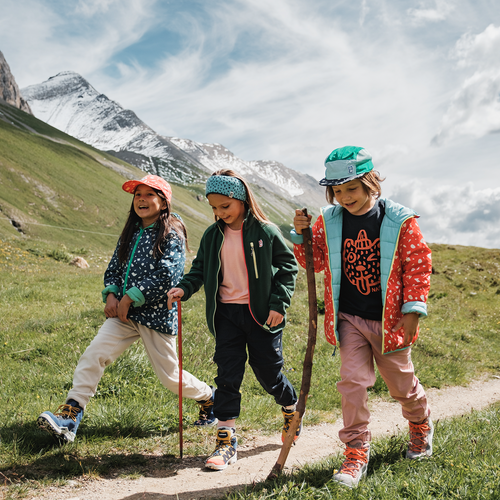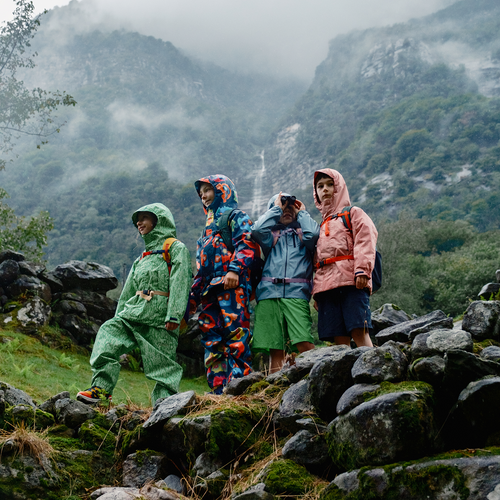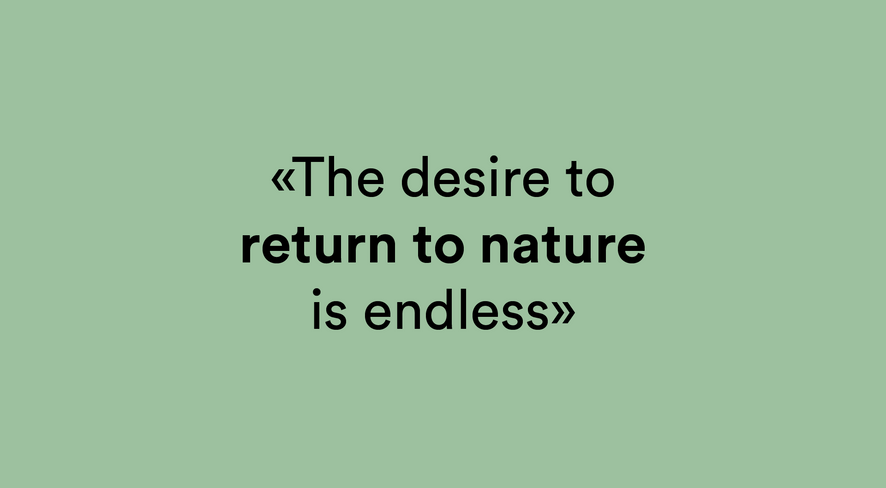In late 2023, namuk collaborated with the market research institute LINK to conduct a study on children's time spent outdoors. We surveyed 1’046 parents in Switzerland and later discussed the findings with Philipp Ramming, a specialist psychologist in child and adolescent psychology. His insights offer valuable perspectives, provoking reflection and re-evaluation on the subject.
"A mixture of wishful thinking and prejudices"
"Parents envision their children playing outside - reminiscent of characters like Winnetou and Old Shatterhand”, he says assertively as our conversation begins. “The study reveals a blend of wishful thinking, health philosophy, and weekend experiences. It mirrors the parents' aspirations, and supporting them in making this a reality could prove highly beneficial."

Within the study, two-thirds of the surveyed parents (68 percent mothers, 69 percent fathers) reported spending more time outdoors than they did during their own childhoods. Additionally, according to their own statements, 91 percent of parents acknowledged that their personal efforts significantly impact their children's outdoor activities. Yet, it begs the question, considering school commutes, breaks, and leisure, how is it possible that Swiss children spend an average of only 1.5 hours outdoors per day?
"It's a balancing act that tears you apart"
According to Philipp Ramming, "Leisure activities have become a matter of family management nowadays." He notes a trend where "parents are more environmentally conscious, striving to be eco-friendly. However, this movement competes with the demands of a career, creating a delicate balancing act that can strain relationships, even between parents."
From his perspective, it is the economically tense situation that demands "a different lifestyle": "In the morning, children are dropped off at daycare, which is also responsible for outdoor activities. But the dream would be - as it was before - life on the farm." The child psychologist says that the pressure on parents to juggle everything is very intense and everything is too "highly scheduled."
"Is there even energy left at the end of the day?"
In his overall perspective, he does notice awareness among parents: "But it's a question of the 'psychological organization' of the family. Is there even energy left at the end of the day to go into nature with the children?" It's evident that spending more time outdoors would be beneficial for the psyche of all family members.

When asked who should be held responsible, the child psychologist responds: "Actually, we should hold city planners accountable. Cities are unfriendly to children. We need more small play areas." He argues against placing additional pressure on schools, citing forest kindergartens as a positive example "We need to define gaps and support what is already working well," emphasizes Ramming, also mentioning the Vita Parcours offering. When asked if, in the context of counseling, he advises families to spend more time in nature, the psychologist says that he consciously does not give advice but rather "supports." He emphasizes, "It's much more important to enable families to engage in outdoor activities. That's where we need to provide support."
"We need to facilitate implementation"
At the end of our conversation, I inquired about his perspective on the value of children spending time in nature. He articulates, "Understanding begins with grasping, and in nature, things are tangible and experiential. Outside, children have the opportunity to find out what they can and cannot do. It's not just healthy for the body. In nature, we perceive ourselves - through movement - and learn to educate ourselves." The child psychologist underscores the importance of doing things together as a key to positive outdoor experiences. "Then we have a triangle of 'Nature, Parents, and Child.' An exchange is created between all three parties." Emphasizing the endless desire to return to nature, Philipp Ramming concludes, "We need to facilitate implementation."






















